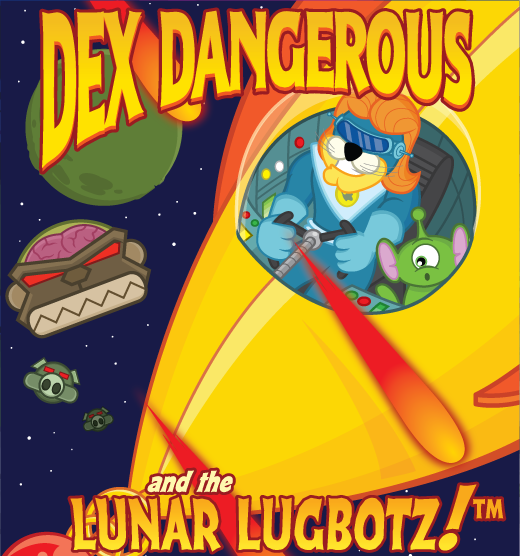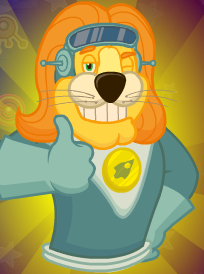As I have been rather lax in blogging, I will apologize with a snippet scene, since it's been a while since I've put one up. Here is the first entrance of Vic Vance, master of surprise and oddball extraordinaire, from
In Greater Hands.
***
Leta shrugged and headed towards a small building that looked like some kind of a cafe. She entered and looked around inside it. It was decorated in a quaint, sort-of picturesque style, with flowers in carved wooden vases along the half-walls that were by the entrance. There were a few random paintings on the wall behind the counter, but aside from these the walls were bare of anything but their warm, brown paint. Only a few people were inside - an old lady with a small girl in a booth, a server behind the counter, and a dark-haired younger guy sitting at the counter.
Nothing seemed out of place... Not that anything should, Leta reminded herself. Leksvia was a pretty quiet town, after all. Leta went to the other side of the counter and sat down.
The server came over. "Would you like a list?," he asked in Russian.
"Yes, thank you," Leta replied in the same tongue.
It felt like a flashing memory to speak her home language again in her homeland. It had been so long... Even just one word felt like she was home again when she spoke it. It filled her with the old thoughts of the last time she'd been here. Leta shook herself. No. Can't think of that now, she told herself.
After the server had left, Leta glanced around the cafe again, more closely observing her company to distract herself from more reminiscing. The old woman in the booth was dressed in a black trench coat and had her silvery hair bunned up stiffly. Her expression was very calm, and she watched the small girl. The girl had to have been around four or five. She wore a large white bow in her red hair, and had a long, flowery skirt that reminded Leta of the flowers in the vases along the cafe's walls. The young man across the counter had dark, coffee-colored hair that looked like it had been blasted back by a gust of wind. He was actually looking in Leta's direction, glancing over at her with bright lime-green eyes.
Leta looked down embarrassedly. Maybe it was a little rude to watch other people and expect not to be watched in turn. So she turned her attention to the menu that the server had given her.
When the server came back, Leta gave her order and handed back the menu. She fell back into looking around the cafe. There was that sweep-haired weirdo again - the guy across the counter - still looking over in her direction. Oh well... This probably wasn't the last time Leta would be watched by someone or other with her career starting now. It didn't really bother her. Well, okay, maybe it did bother her a little bit, but not any more than the fact that she still hadn't gotten her order... and time ticked on relentlessly. Normally she wouldn't care, but today, everything had to be on time - no messing up.
Leta tapped her finger on the counter, a sign of impatience usually. The server came back, and gave Leta a paper with her bill and Lady Lecta's name on it. Leta had been instructed to use Lady Lecta's name, in case of trouble.
The server brought her a tray with her order. "I apologize for your wait, Miss Lecta."
Leta paid him, and then the server departed. Leta ate quickly, still thinking of her mission. She still had time, but it was best not to cut it close.
Suddenly, interrupting her thoughts, there was a buzzing noise, faint, but surely not just imagined. It must be my contactor... If it was, though, it could be Lady Lecta. It could concern the mission or any other thing of great importance. Leta took it out. It was the contactor making the noise alright.
Glancing around briefly, Leta quickly swiped her hand over the device. She expected to see the eyes of one of the secret sergeants pop into view, or the commanding countenance of Lady Lecta, but instead she saw the recently-familiar lime-green eyes and swept-back dark-brown hair of someone else entirely. It was the man who had been watching her from across the counter!
"Hallo!," the man said from the contactor.
Leta glanced bewilderedly across the counter. The guy was still there! He had his own contactor out and nodded when she looked his way. She looked back at her own mechanism. Fears began to pop into her mind one by one. Maybe he was dangerous. Maybe he was from an enemy of Lady Lecta. Maybe he was a spy or the one who had made the fake message to bring her here. Maybe he had found out what Leta was doing here and had come to stop her. Leta knew she couldn't panic, though, whatever the case.
So Leta decided to try and play it cool. "Why did you contact me?," she asked, hoping the question sounded commanding.
The device's hologram-man shrugged. "I was bored, you looked nice enough, so I decided I might query your name," he said, half-smiling in a friendly manner.
Leta didn't quite know what to think. Only her first official task mission and something like this had to happen...? She raised an eyebrow in question. "You could have just come over and talked to me if you were that bored."
"Well, that's the easy solution," He nodded nonchalantly. "Most guys would have done that in such a case."
"Why didn't you?," Leta questioned dryly.
He shrugged again. "Me, I like to keep things interesting - surprise people. Didn't I make it so much more interesting this way?"
She blinked in confusion and quickly checked herself, as she felt a smile coming through. "You did, I suppose," she said, feeling foolish talking to the hologram of a person who was right across the counter.
He nodded as if to prove his point. "You see?" he smiled. "Way more interesting."
"How did you contact me?," Leta asked bewilderedly, trying to get a grip on the conversation.
The man's face brightened. "Simple! I - being as bored as I was - happened to overhear the waiter call you Miss Lecta. Now, I happen to know of someone called Lecta, and if you had been the same Lecta, he would have never called you something so plain as 'Miss'. So, I looked it up on my contactor. Now, there were several different pins under the same name of 'Lecta', so, ruling out the one I knew, I simply picked at a guess," he said carelessly, as though the occurrence was nothing special.
"Some lucky guess," Leta mumbled, somewhat put out that she was such a terrible spy that she got contacted by random guys in restaurants on whims. Suddenly a thought struck her. "Wait. If you already knew my name, why were you going to ask it?"
He shrugged yet again. "If I had gone over and talked to you instead, wouldn't I have still asked your name relentless of whether I had heard?"
"I suppose..."
"Then there you see my point," he answered honestly. "Wouldn't you have thought it was odd if I contacted you and acted like I already knew your name even though you hadn't even the slightest notion of mine?"
Leta rolled her eyes in frustration. "I do think it's odd." She looked irately at the device. "Why don't you just come over and talk to me now instead of being weird?"
"Alright, Miss Lecta - as you like it," said the man's voice, not from the contactor, but from right next to Leta. She started, but quickly masked her jump as putting away her contactor.
"Alright then..." Leta really had no idea where to go from here. "And since you know my name, you can stop calling me 'Miss Lecta'"
"Actually..." He paused. "That's all I know of your name - is Miss Lecta. It only puts surnames and sometimes initials on the pin codes. Might I inquire as to what your first name is?"
Leta hesitated. Should she tell him her real name, or Lady Lecta's? Since he said he knew of someone called Lecta, maybe it was Lady Lecta? And he had said that the Lecta he knew of wouldn't have been called merely 'Miss,' so that sounded like Lady Lecta... If that was so, then telling him Lady Lecta's name, as she had been instructed, might get her found out as a fake! So, then, should she tell him her real name? She probably wouldn't ever see him again, so what harm was there in it? None, I guess. Leta saw no great harm in it, and if she had hoped to be discreet, she had already failed.
"Leta. It's Leta," she said finally.
The man looked thoughtful for a moment and raised an eyebrow with an expression as though he was trying to decide whether he liked an odd new food. "Hmm... Leta Lecta?," he murmured, looking at her again. "Just doesn't fit you. Well, Leta does, but it just doesn't sound well together. Hmm. Leta Lecta..."
"Well, I live with being called it, so I think it's fine," Leta said, trying to act offended. Acting for cover-up wasn't as easy as acting for any school-play or stage-musical as Lady Lecta had made it sound.
"I'm sorry, I just don't think it fits you very well," he said apologetically, seeming to buy her poor act.
"Well, your name fits you perfectly, then?"
"Fits like a boot."
"Uh, don't you mean a glove?"
"Nope," he said, absently tapping his rather long fingers on the counter. "I said what I meant: a boot. Never yet seen a glove that fit me well, so I amend the phrase for myself, to something that actually does fit well. So, like I said, it fits me like a boot."
Weirdo. Leta shook her head. Whatever. "I'll decide that, since you seem to be the judge of mine. What is your name?"
"Vic Vance, or Vicinius Vance if you prefer."
"Vicinius?"
"What? It fits me, doesn't it?"
"Well, yes, I guess it does..." Leta had to admit that it actually rather did.
Vic Vance nodded. "Then there you go."
Leta suddenly remembered her mission. She had to somehow get out of this conversation without seeming suspicious - she needed to start heading to the Ristoff House. I need to get Ristoff…
"What about Ristoff...?," Vance questioned with a confused smile.
Leta flushed. Had she said that out loud...? Oh no... Another blunder to add to the count today...
"I know where the Ristoffs live," Vance offered. "If you're looking for any of them, that is."
Leta hesitated. She needed to find Ristoff, it was true. And time was quickly flying... Leta might not have time to find Ristoff herself at this rate... And if she didn't find Ristoff, it would be a failed mission. And if Leta only let Vance show her the house, then there wasn't any harm done... right? Maybe just this...
At last, Leta nodded. "Yes - could you show me?"
Vance smiled brightly. "Just follow me."
***












